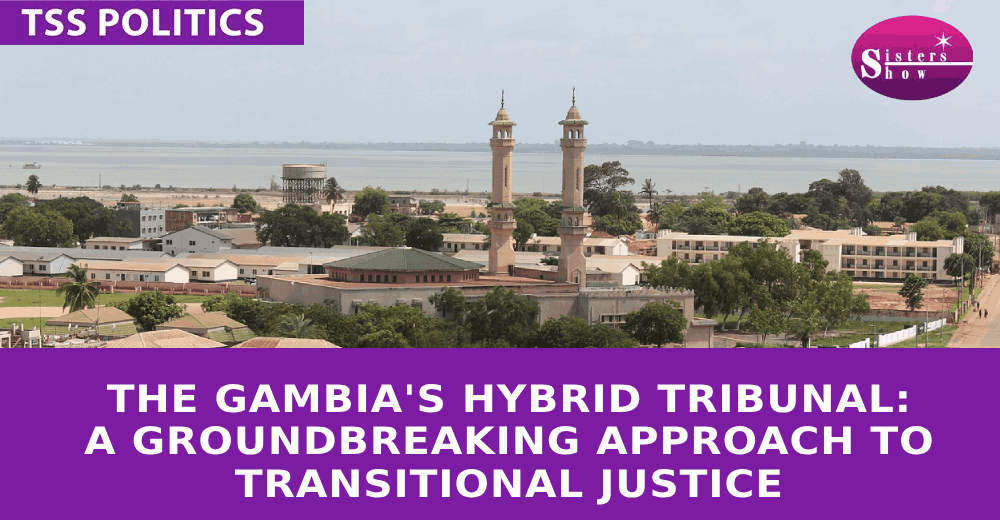
The Gambia’s Hybrid Tribunal: A Groundbreaking Approach to Transitional Justice
The Gambia’s Hybrid Tribunal: A Bold Experiment in Transitional Justice
The establishment of a hybrid special tribunal in The Gambia represents a pivotal moment in the pursuit of transitional justice, offering hope for addressing the legacies of human rights abuses. This tribunal is a unique blend of international and domestic legal systems, designed to bring accountability for the crimes committed during Yahya Jammeh’s authoritarian rule. While this innovative mechanism faces significant challenges, it presents a unique opportunity for reconciliation, justice, and reform not just in The Gambia but across Africa.
The Gambia’s history is marred by gross human rights violations under Yahya Jammeh’s regime (1994-2017), which included extrajudicial killings, torture, enforced disappearances, and political persecution. These violations created deep societal wounds that have hindered the country’s ability to heal and develop. While the Truth, Reconciliation and Reparations Commission (TRRC) played an important role in documenting these atrocities, its mandate stopped short of holding perpetrators criminally accountable. This is where the new hybrid tribunal comes in, marking a bold step towards delivering justice.
The initiative to establish this tribunal was introduced in early 2024, following a series of consultations by The Gambia and the Economic Community of West African States (ECOWAS). The tribunal aims to prosecute those responsible for the crimes committed during Jammeh’s regime, holding individuals accountable for atrocities that have long impacted Gambian society.
The Hybrid Tribunal Model: A Balanced Approach
Hybrid tribunals are increasingly seen as an effective means of pursuing justice for international crimes, combining the benefits of international law and domestic legal systems. By integrating both local and international judges, prosecutors, and legal experts, hybrid tribunals offer a more contextualized approach to justice that resonates with local communities while adhering to international legal standards.
In the case of The Gambia’s hybrid tribunal, this model ensures the involvement of local legal professionals, allowing the tribunal to maintain cultural sensitivity and address the specific needs of victims while benefitting from international legal expertise. This integrated system also boosts the legitimacy of the tribunal, enhancing local support for its proceedings.
Previous hybrid tribunals, such as those established in Sierra Leone and Cambodia, have proven effective in delivering justice for crimes committed during civil wars and genocides. The Special Court for Sierra Leone (SCSL), for example, held individuals accountable for atrocities committed during the Sierra Leone Civil War, while the Extraordinary Chambers in the Courts of Cambodia (ECCC) prosecuted those responsible for the Cambodian genocide. The integration of national and international laws in these cases demonstrated the potential of hybrid tribunals to bridge gaps between local communities and international legal frameworks.
Overcoming Challenges: Political Will and Resources
While the hybrid tribunal in The Gambia offers significant potential, it is not without its challenges. Securing consistent political commitment is critical to its success. The Gambia must ensure that there is sufficient funding, protect the tribunal from political interference, and safeguard witnesses participating in the process. Additionally, maintaining impartiality and managing competing interests between international and local legal systems will be key in upholding the tribunal’s integrity.
The tribunal’s success will largely depend on the government’s ability to engage with the international community and secure the necessary resources for its operations. The careful management of financial and human resources will be crucial, particularly as the tribunal works to balance the pursuit of justice with national reconciliation.
A People-Centered Approach to Justice
A defining feature of the Gambia’s hybrid tribunal is its focus on a people-centered approach. This model prioritizes victim participation, ensuring that their voices are heard throughout the justice process. It goes beyond simply prosecuting offenders; it emphasizes healing and providing reparations for those affected by the abuses. The Gambia Bar Association (GBA) has been a strong proponent of this approach, emphasizing that the tribunal should address the needs of victims and contribute to the country’s collective healing.
The success of the TRRC, which relied heavily on the testimonies of victims, laid the groundwork for this people-centered model. This tribunal aims to continue that work, ensuring that justice is not just about holding perpetrators accountable but also about offering hope and support to those who have suffered the most.
Global Implications: A Model for Africa?
The Gambia’s hybrid tribunal holds significant implications for transitional justice worldwide, particularly in Africa. The country’s commitment to addressing the human rights abuses of the past serves as an example for other nations grappling with similar challenges, such as Ethiopia and the Democratic Republic of Congo (DRC). The tribunal’s ability to blend international expertise with local legal systems could become a blueprint for addressing crimes against humanity in diverse contexts.
Conclusion: A Transformative Opportunity
The establishment of the hybrid special tribunal in The Gambia is a courageous step towards justice and reconciliation. Although the journey ahead is fraught with challenges, the potential rewards—justice for victims, accountability for perpetrators, and a stronger, more transparent legal system—are immense. The international community has a critical role to play in supporting this initiative, ensuring that the tribunal can fulfill its transformative potential.
Ultimately, the success of The Gambia’s hybrid tribunal will serve as a powerful reminder that justice is not only about holding perpetrators accountable but also about empowering communities to heal and rebuild. As we support this and other similar efforts, we move closer to a world where justice, accountability, and reconciliation can pave the way for lasting peace.
Don’t miss out on the latest updates. Stay updated with The Sisters Show. Get all the details and never miss a beat!
Read More:- Nigeria and China Strengthen Security Ties: Military Training and Local Arms Production




